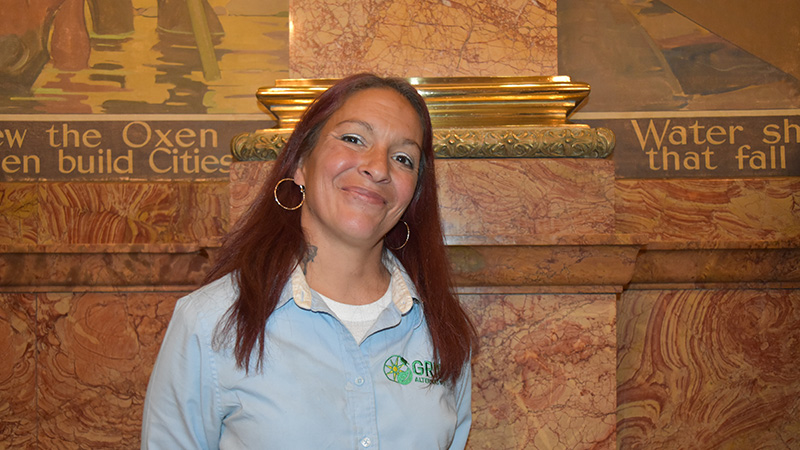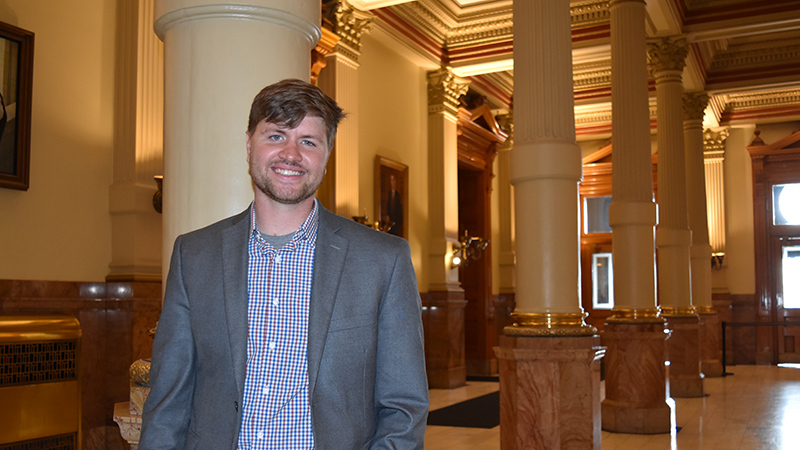April 16, 2020
Last year, as Colorado lawmakers considered a legislative bill called Colorado’s Climate Action Plan, people from across the state traveled to the capitol to tell lawmakers why they believe Colorado must take action to cut climate pollution from all sources. And they listened! Colorado’s landmark Climate Action Plan creates the kind of framework needed for real action on climate change, including science-based greenhouse gas pollution reduction goals for 2025, 2030, and 2050. Despite important work recently done by regulators, lawmakers, utilities, and other leaders, we are still far from meeting the climate goals our state committed to reaching. We need continued strong leadership and a clear path forward to equitable climate action and community justice.
Now, more than ever, we are reminded that strong state and local leadership, science-based decision-making, and efforts to protect public health are invaluable, and we appreciate the work our leaders are doing to respond to the pandemic and keep Coloradans safe. At the same time, we have a critical window to make climate progress and justice in Colorado a reality. If we succeed, we can ensure a healthier future for Coloradans today, as well as our children and grandchildren. Next month, Colorado’s Air Quality Control Commission – the entity tasked with implementing rules that will ensure Colorado achieves its climate goals – is taking a first step in that process. The Commission will adopt rules that require polluters to report their greenhouse gas emissions in Colorado.
You can help
Thank the CO AQCC for their efforts, and encourage them to build on those efforts with rules that achieve our climate goals.
Ruth Lopez | Denver, CO

For Ruth Lopez, limiting carbon pollution in Colorado means investing in clean energy jobs, like the one she has. Ruth previously worked in a hospital cafeteria. After seeing a brochure for a solar training course with GRID Alternatives, Ruth and her friend drove straight to the office to sign up. Just a few days later, Ruth was sitting in class and about to embark on a new career path.
“I read the GRID Alternatives brochure; one cause of homelessness is utility bills. It struck a chord with me.…Why not pursue renewables and cut costs for people?”
In 2018, Ruth completed GRID’s two-week Solar Training Academy. The intensive training gave Ruth exposure to the industry, and she was soon in the field learning how to install solar panels. That gave her a leg up to find a full time job after the training ended. Now, Ruth is finishing a 13-month construction fellowship and she is excited to keep working in solar.
When discussing her job in the solar industry, Ruth said it has “given me confidence, empowered me with new knowledge, and I’m proud of how I am providing for my family and to finally have a career.”
Shaina Oliver | Denver, CO

Shaina Oliver grew up on a part of the Navajo Nation in New Mexico where there were multiple coal plants within eyesight.
“You can see the pollution as you approach the reservation,” Shaina said.
Shaina, who has lived in Denver for 20 years, developed asthma as an infant, and has to stay indoors when the air quality is particularly bad. While she feels fortunate that her children were born in Colorado and do not suffer from the same health problems, she knows Colorado is not doing enough to protect our air, our water, and public health.
This inaction drove Shaina to join the conservation group Moms Clean Air Force, so she could help make sure indigenous voices are represented in advocacy efforts to clean up our air and safeguard our natural resources. In addition to fighting the adverse health effects caused by carbon pollution and climate change, Shaina is also concerned about the impact of rising temperatures on Colorado’s snowpack, snowfall, and indigenous communities’ water supplies.
“As a mother, I’m a mother bear; you see the purpose of sustaining that life after you have children of your own.””
Kyle Kociemba-Bensen | Evergreen, CO

Two years ago, Kyle Kociemba-Bensen and René Steenvoorden embarked on a mission to make the coffee industry more sustainable. What began with a store-bought coffee maker in Kyle’s garage has evolved into the Bivouac Coffee Company – a 1,700-square-foot brewery and tasting room in his hometown of Evergreen.
“Bivouac seeks to decrease the environmental impact of global coffee production through specialization in craft natural coffee processing, regenerative organic farming techniques, direct trade, and sustainable roasting practice.”
It all started with a trip to South America, where Kyle was exposed to the harmful impacts of coffee consumption on the environment. A 12-ounce cup of coffee unnecessarily uses eight liters of groundwater, which is four days of worth drinking water.
“Coffee by the year 2050 will kill itself,” Kyle said.
When he returned to Colorado and couldn’t find any water-responsible, naturally processed coffee, Kyle decided to launch his own business focused on sustainable coffee production. His goal is to take this practice to coffee-producing countries to have the greatest possible impact.
Bivouac’s passion for their work is rooted in a belief that they can do better by their customers, by the environment, and by our future. But as a business owners, they realizes they can only do so much.
“In these times when our federal government is unwilling to even talk or mention the words climate change, we need states like Colorado to lead with innovation and creativity in tackling the most pressing issue of our time: climate change.”


